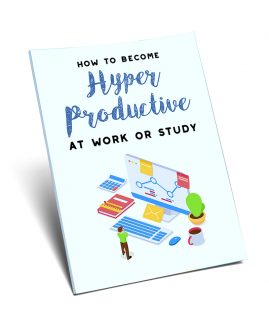
 License Type: Private Label Rights
License Type: Private Label Rights  File Type: ZIP
File Type: ZIP
 SKU: 65135
SKU: 65135  Shipping: Online Download
Shipping: Online Download
Sample Content Preview
Introduction
Have you ever wondered how to become hyper-productive? If so, you're not alone. Many people struggle with being more effective and productive at work or school.
First, you need to understand the concept of productivity. Productivity is simply the amount of work that a person can produce in a given time period. It doesn't matter if the work is physical, intellectual, or emotional. If you can increase your productivity, you'll be able to achieve greater results in less time.
By understanding the basics of time management and productivity, you can start building habits that will help you get more done. In this report, we’ll share some tips and tricks to help you become hyper-productive.
What are some common misconceptions about productivity?
1. More hours worked are always better
First and foremost, misconceptions about productivity are often ingrained at an early age. It is often thought that more hours worked are always better when it comes to productivity. In reality, this is a common misconception that can have negative consequences. There are a number of reasons why more hours worked are not always the best strategy for improving productivity.
The most obvious reason is that employees can become burnt out. Depending on the workload and the individual, working more hours can lead to feeling overwhelmed and overwhelmed. This can lead to a decrease in productivity and an overall decrease in the quality of work.
Additionally, more hours worked can lead to a decrease in creativity and innovation. By working more hours, employees may imitate the work they see other employees doing. This can lead to a decrease in the quality of work and a decreased ability to come up with new ideas.
In the long run, more hours worked can also lead to decreased productivity. This is because when employees work more hours, they are less likely to take advantage of their time off. This can lead to a decreased ability to relax and rest, which can have a negative impact on the quality of work.
A Stanford University study talked about how doing less can make an individual be more productive. John Pencavel, an economics professor, conducted research that revealed a substantial fall in productivity per hour when a person works more than 50 hours per week. Work is so much less productive beyond 55 hours that adding any more would be worthless. Additionally, people who put in up to 70 hours a week only accomplish the same amount of work as those who work 55 hours. This isn’t the final word but it’s very compelling.







